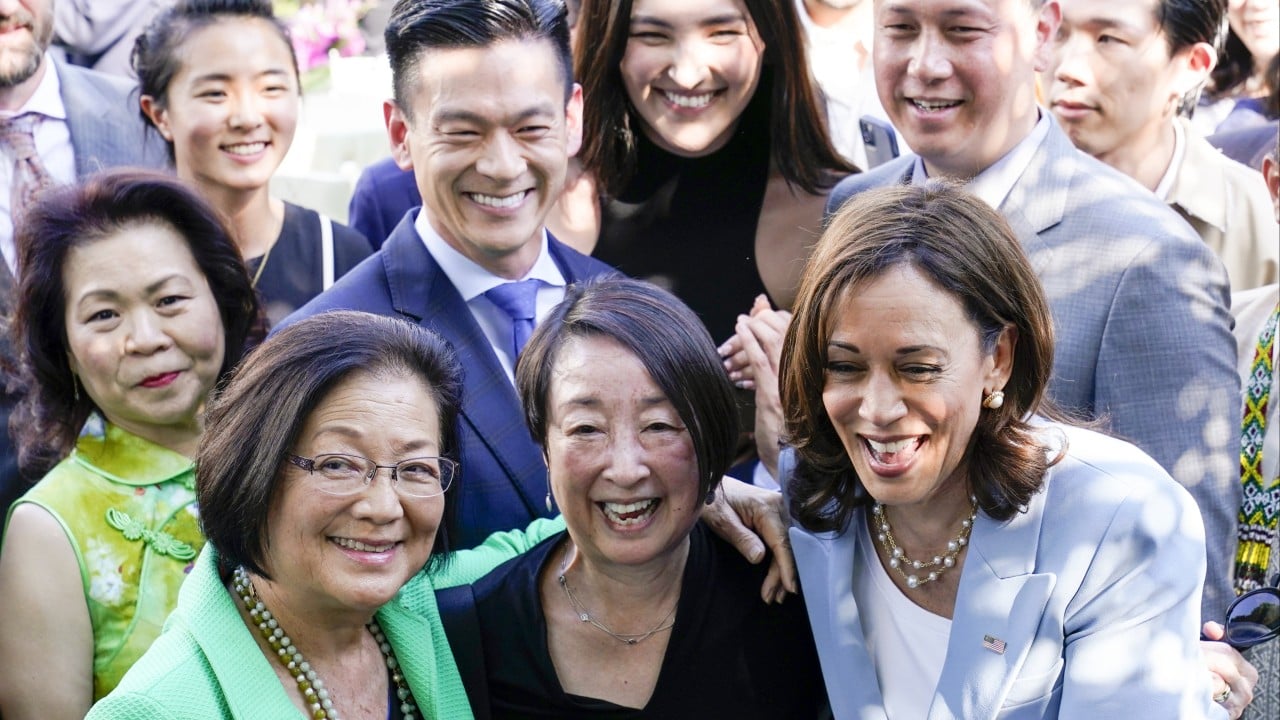Published: 8:30pm, 23 Sep 2024Updated: 9:19pm, 23 Sep 2024
As the United States heads into the 2024 presidential election, the Asian-American and Pacific Islander community is justifiably proud of its achievements. It has an AAPI presidential candidate in Vice-President Kamala Harris. It is the nation’s fastest-growing ethnic group, having doubled its numbers between 2000 and 2022. And it is gaining political muscle with a rising number of lawmakers in Congress.
Advertisement
But in a nation where identity politics reigns, the community of 24 million has some fundamental political weaknesses it must overcome to claim its rightful slice of the American pie – starting with an identity problem.
While mainstream American society does not lump all European-Americans in one basket, it does with Asian-Americans, although they trace their roots to more than 40 countries accounting for 60 per cent of the global population.
Advertisement
Although Asians have lived in the United States since before its creation, most kept a low political profile for centuries amidst pervasive racism. With a political awakening after the 1965 passage of landmark immigration legislation, the term “Asian-American” term was born – credited to a Chinese and a Japanese graduate student at the University of California, Berkeley – bolstering visibility and replacing the commonly used, racist “Orientals”.
A half-century on, however, the term’s shortcomings have only become more apparent. While there is a growing appreciation of distinct Asian cultures among mainstream Americans, 60 per cent of AAPIs say they’re still viewed as monolithic “Asians” in casual contact.

